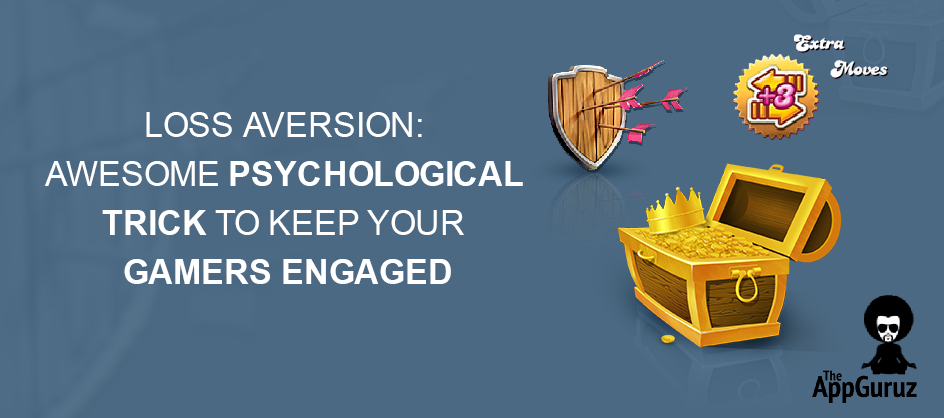Objective
The main objective of this blog post is to shares with you the one of the most powerful tools game development companies use to make games that turn out to be super-hit.
Step 1 Basic principle of Loss Aversion
Long back, my friend Greg was surfing the internet and suddenly this ad popped up

Greg is neither a big time fan of Levi’s nor very brand conscious. In spite of that, the ad somehow appealed to him. Although he had a busy day ahead, he managed the time to go out and purchase two pairs of jeans.
Two pairs of jeans that he could have done without.
What was the so powerful about the ad that it hooked Greg?
The percentage of discount, perhaps?
Sure, the number (60%, in this case) is too big to go entirely unnoticed (Who cares there’s an ‘Upto’ alongside?!). The color combination too was smartly made; in case you aren’t aware, black color can signify ideas of Fear, Expensive, Sophistication, Grief.
Perhaps the color injected Fear into Greg’s mind (“ I’ve gotta rush or I’ll miss the sale!”), perhaps it suggested Sophistication (“Levi’s is real class!”), even Grief (“Why on earth I’m always the last person to hear about such amazing offers?”).
All possible, but there’s one factor that exerted the strongest pull.
Greg simply didn’t want to miss out the great offer.
"Gosh!
Sixty percent off!
I can’t afford missing this!
It’d be too huge a loss to me!"
In Psychology, this is called Loss Aversion. Put simply, it means humans don’t like losing anything.
For years, marketers have used this strong psychology tool to exert influence on prospects. Marketers know humans don’t like being left out. Humans don’t like to incur a loss. Humans can go to great lengths to avoid loss.
As a matter of fact, some studies suggest humans view the negative impact of loss twice as strongly as they view the positive impact of a gain.
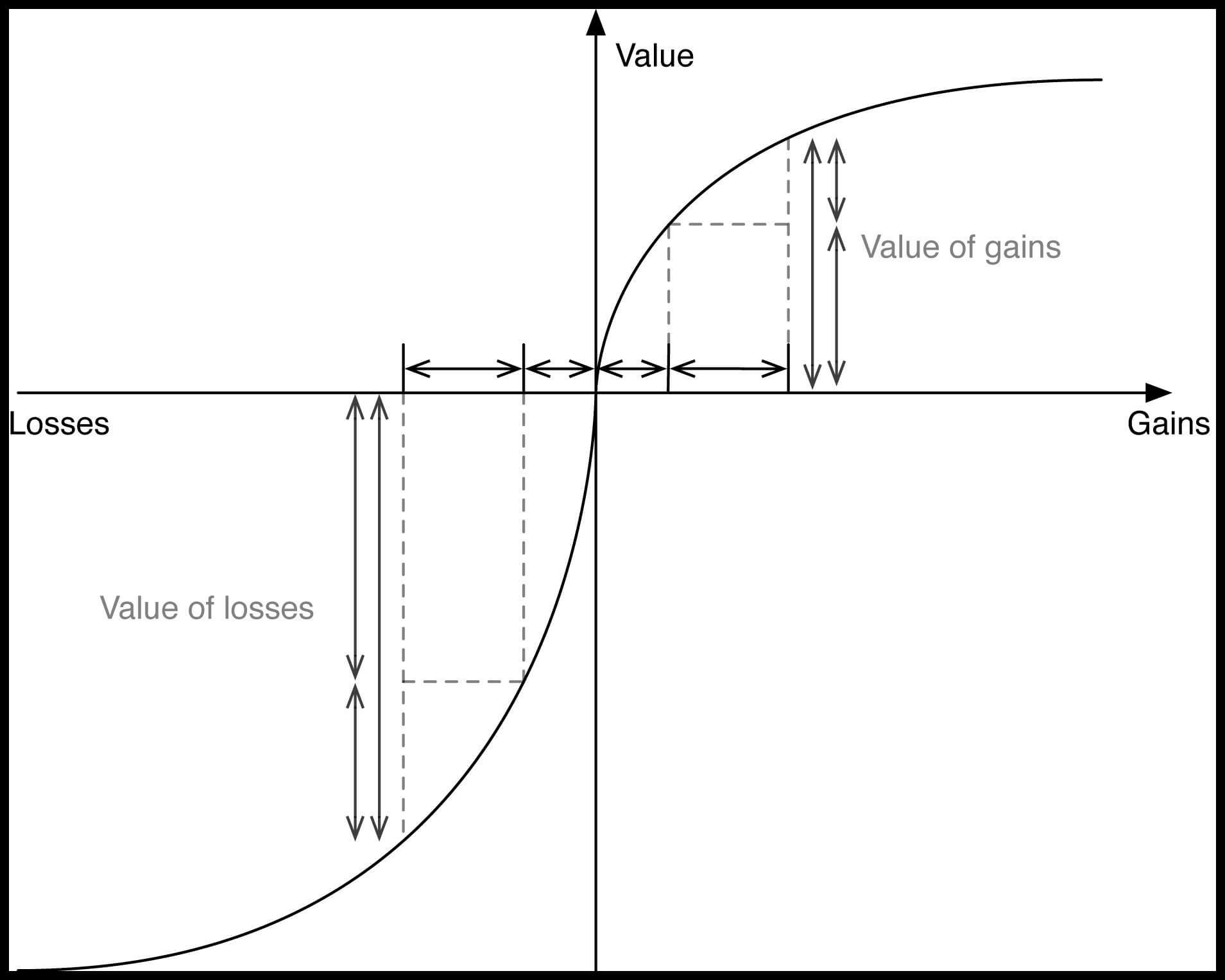
This is the very idea that marketers have been using since a long time in at least two forms:
Step 2 Hurry! Sale closes this Saturday!
Such headlines stir some strong emotions that are exploited by the marketer.
What if I can’t take the advantage of this awesome offer?
It would be a loss to me, in the sense I won’t be able to save those 11$. If only I could save those 11$, I could buy something else too - some gasoline for my car, a weekend’s stock of donuts, that online course from Udemy… anything.
I don’t want to make a loss. Losing out on this offer might mean having to sacrifice those donuts or the gasoline. No, no... I can’t afford to let this offer go. I can’t afford the loss.
Now let’s see how it applies in gaming.
Consider Clash Royale. You get your first free chest after 4 hours. After another 4 hours, you get another chest. After yet another 4 hours, No you don’t get another chest.
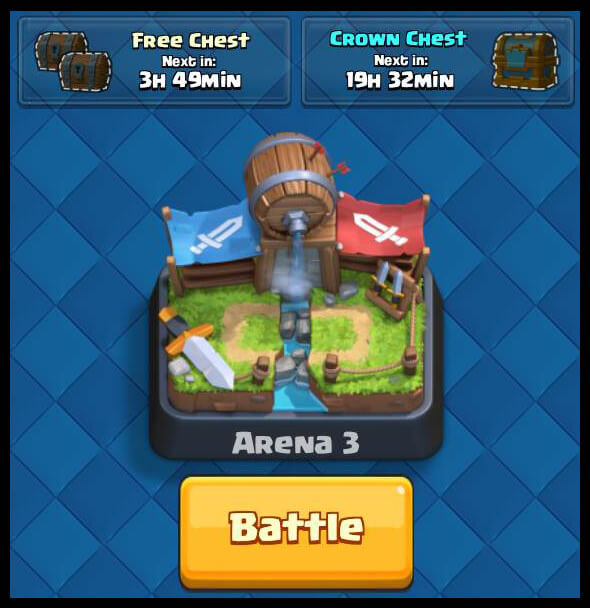
Until the time you open the previous chests, your 4-hour chests won’t start coming in again. You’re now fighting a deadline of possible loss (as in, you’ll not have any more chests unless you open the previous ones).
So what do you do?
You go and open the chests every 4 hours, or every 8 hours.
Why?
That’s because you don’t want to lose the free chests coming in.
That’s Loss Aversion in action. Funnily, you try not losing a new chest that’s yet not come in at all!
Step 3 The free trial period ends tomorrow
Once I have downloaded a free software, it kind of gives me a feeling it’s mine (technically that’s incorrect because I haven’t paid for it yet.). The trial period is about to end, so I’ve got to pay up if I intend to continue using it.
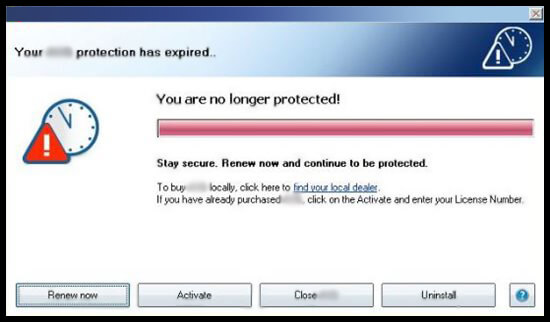
Because it’s sitting on my laptop, it somehow gives a feeling so ownership (however faulty). Now that the expiry is close by, I don’t like the feeling that I’m going to lose it!
The company intends to revoke the software, it’s taking away something that’s mine. What can I do to stop the company take it away?
OK, let me buy it!
As Dori Adar describes this in his beautiful article,
"Game developers have been exploiting this tendency from the early days of gaming. If you’ve ever played arcade games, you probably remember the Continue? option after the player dies."
And here’s one more reason to use this psychology: researchers David Gill and Victoria Prowse have found evidence that,
Loss aversion may be more salient when people compete.
And games are all about competition too, right?
So if you are a game designer, how do you use Loss Aversion in building a more addictive, more engaging game?
You can find all the places where there are opportunities for loss by the gamer. These are exactly the points where you can exert this force.
The methods can vary. You can consider one or more of the following:
Step 4 Example: Candy Crush
The gamer may have attained a certain status, cleared some levels, earned some number of gems. Now it looks like you might be losing her.
You can’t afford losing her, because her engagement in the game has already been sizeable.
So this is what you say, although in different words,
"Look my friend! You’ve worked pretty hard to reach this status / get the gems / clear the levels etc. They’re all yours. But wouldn’t it be sad if you lost them? Well, once every 2 days you’ll need to drop in and keep playing!”
The player doesn’t want to suddenly lose what she’s collected from here. So she manages to avoid the loss and thereby remains a regular on the game.
Look what happens with Candy Crush. The gamer has reached a level that allows, say, 50 moves. She’s already in her 48th move, and realizes she’ll need another 4 moves to win.
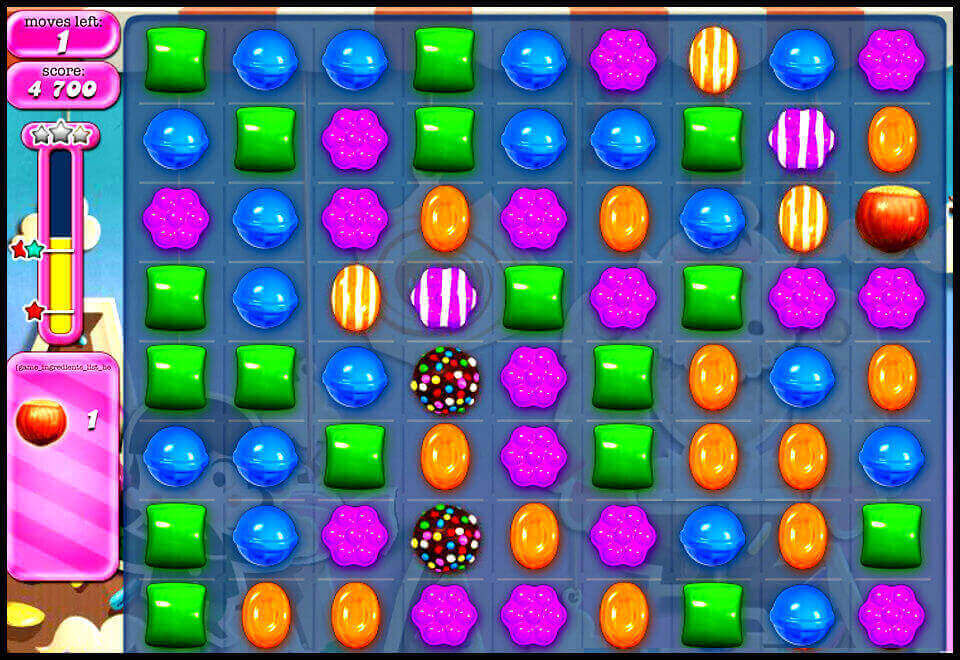
From the total 50 moves, she’s got only 2 more moves left, against the required 4 moves. What a pity, she’s short of just 2 moves!
She’s been winning till now, clearing one level after the other. And she’s feeling awesome about it. There’s no way she’ll let a shortage of just 2 moves, just 2 moves, to make her lose the game.
So she’ll go ahead and buy whatever helps increase her moves. After all, if a small purchase can avoid a big loss, it’s no big deal for a gamer.
Loss Aversion again.
Step 5 Example: Farmville
Farmville uses this pretty smartly. The gamer has tended to her farm and it looks like the potatoes are coming up pretty nice.
But well, the gamer may not be able to play for the next 7 days (may be she’s getting married!). It’s not that Farmville doesn’t like people getting married :)
It’s just that Farmville doesn’t like gamers staying away from the game too long. So here Farmville uses the Loss Aversion technique.
In effect, it says
"Hey dude! You’ve got to water the plants, right? How else would they survive? The potato crop would all die. All your hard work would go down the drain! You wouldn’t want that to happen, would you, buddy? Then keep coming back. And again. And again. Then you won’t lose your crops."
The game thus shows what loss the player would incur if she stays away for too long. And just like the rest of us, the gamer too doesn’t like to lose things. So she’ll come back, even if she’s right in the middle of the marriage ceremony!
FarmVille Hook Cycle. Click here for further reading on the Hook Cycle.
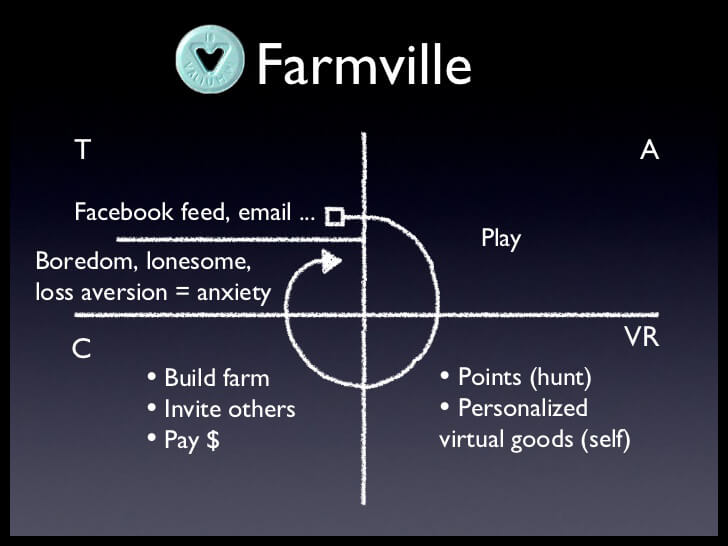
Step 6 Leverage the unused Components
The gamer has not used some benefits or components during the game play. The features were there, but somehow they remained unused. You can leverage the unused components.
So here’s what you essentially say,
"Hey Dylan! You didn’t use everything we offered and the game feels bad about it. So the game has decided you’ll not be getting XYZ privileges unless you use the pending features within the next 24 hours!"
That sends the Loss Aversion feature in action. The gamer doesn’t want to lose out the benefits (remember, she may not have earned it, but all the same), so she will want to come back to the game.
Obviously there’s one more perspective. All games will offer your paid alternatives for most actions. "Can’t drop by every 3 hours to water the plants? No problem! You can consider buying the special coins!"
That’s direct monetization. But that would require another another post, one that talks about how and when to ask for money from the gamer!
I’ll share with more strategies in the coming days. Meanwhile, let me know what you think.
PS: Free-to-play (F2P) games use strong Psychology tools to make money from 'Free' games. Read this.

An entrepreneur who has founded 2 flourishing software firms in 7 years, Tejas is keen to understand everything about gaming - from the business dynamics to awesome designs to gamer psychology. As the founder-CEO of a company that has released some very successful games, he knows a thing or two about gaming. He shares his knowledge through blogs and talks that he gets invited to.
